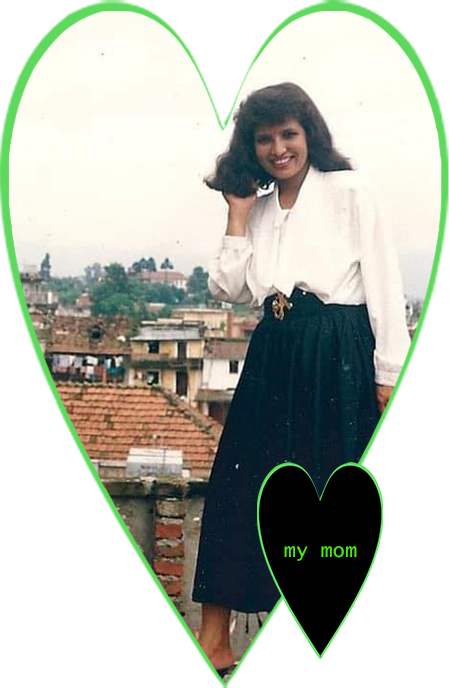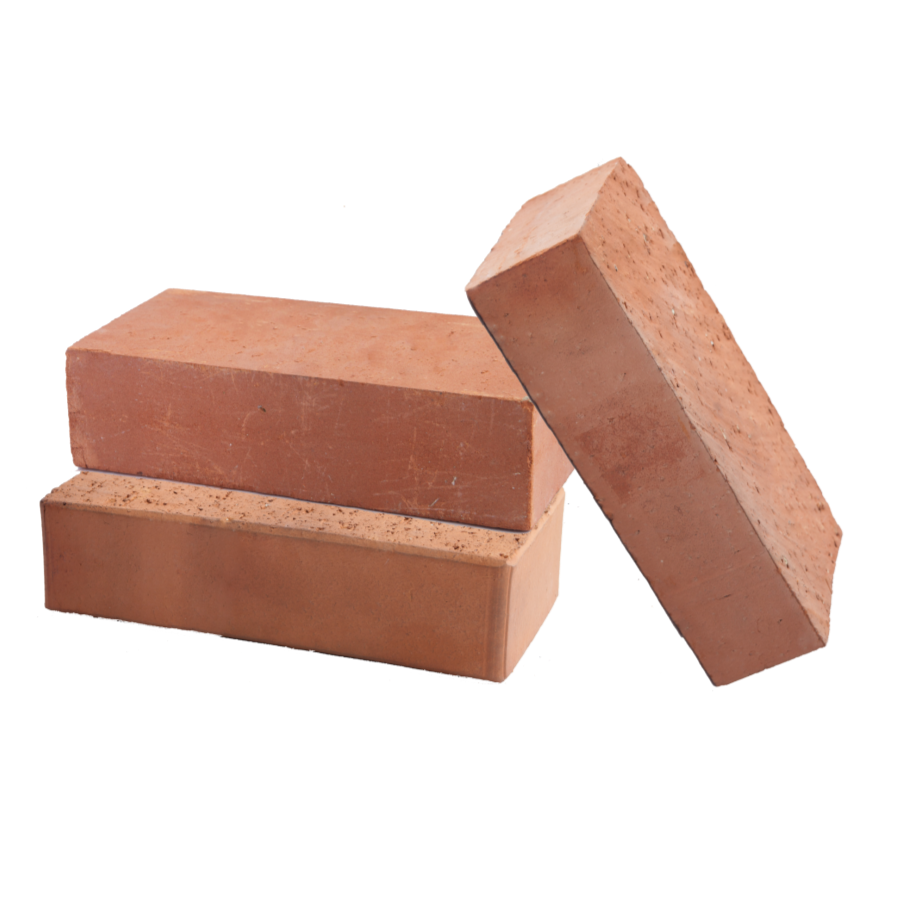
she/her/
anything respectful


I WAS BORN in Nepal, in Kathmandu. Both my mom's side and my dad's side are from a remote village in Nepal. My mom is somebody that really defies norms of patriarchy. Even at a young age, she took care of her siblings, took care of her parents, got arranged married at 16 – and most importantly excelled at school and was determined to continue getting an education. Despite all the challenges, she pursued education and really knew that it was going to be the reason that she could get her family out of poverty.
Even in the 90s, she had a job in the government. And that's not a position that a lot of people, especially women, had back in the day. Still today there are few women in high-level government positions in Nepal. Personally, for me, it was hard to have somebody like a mom person in your life that is so focused on, you know, something other than yourself, but it really allowed her to do amazing things. And she won the diversity visa lottery to come here. When I was 11 years old, we moved to Virginia.
We immediately moved because there was a lot happening in the battle with the Maoist insurgency. For my mom, it was really challenging, because in her mind, she’d worked really hard to be in a position where she had certain things done for her and here, to start from square one was really difficult for her. She was almost a minister in Nepal and then here, she was working at 7-Eleven, scrubbing floors and cleaning toilets and things like that. But I think for my parents, because me and my sister were both girls, they knew that in Nepal we wouldn't have the opportunities that we would have here. I guess that's 'the sacrifice,' really, although I don't like that word.


My sister and I were both old enough to recognize that our extended family wasn't here. Also in Nepal, we had just built our home, it was our dream home and my parents had chipped in money to complete it. Seeing that and then coming here and not having beds or a proper dining table to eat meals together, until maybe a year and a half into being here, you realize that your parents are really making a sacrifice to be here. But I think part of it is also for themselves, right? One of the things that my mom always tells me is how challenging it was in Nepal to be in the workplace as a woman because it was the constant having to prove that you're worthy enough to be in the room she was in.
I THINK THAT I've always been aware of being an immigrant. In the beginning, when we were doing our paperwork, whether it's Medicaid or whether it's for school or whatever else, I helped my family through it. They don't have really strong English. I mean, neither did I. I knew that my other Nepali-American friends were doing something similar and it was easy for me to identify with them. Seeing my dad work all the time - like 80 hour weeks - and my mom studying and kind of working their way up the social ladder a little bit, always made me aware of the fact that we were immigrants. We don't come from a lot and my parents are working hard to get to whatever the next level is. Now I think I'm assimilated into American culture, but I still carry parts of me being an immigrant, wherever I go.
With my work at Adhikaar, what I've realized is that privilege is still a thing that exists within an immigrant space. When my family came here, because of the diversity visa program, we were handed social security and green cards right away. Now I'm recognizing how much of a privilege that is. The community that we work with at Adhikaar is very much people that are almost invisible, even within the Nepali community: restaurant workers or chefs or domestic workers, nail salon workers, Uber drivers, people that are in informal sectors. And so for me, as tough as it was, being somebody that comes from a brahmin background, as a daughter of somebody that got a diversity visa, that all comes with such privilege. Whereas there are families that don't have that set of privileges, families that are still struggling, whether it’s with their gender, their ethnic identity, their caste, or class.

I’VE ALWAYS FELT like I had a dual identity – Nepali and American. It was more distinct after college, but even in high school, it’s like you have a different set of cultures and values when you’re at home, versus when you’re out. And it wasn’t like I was half one and half other. I knew that I was completely Nepali and I was also getting acclimated to being American. Now, I’m both Nepali and American. When I moved out to go to college at the age of 18, I had to figure out how much of both my identities I am really going to take on, versus how much of it was toxic, stuff that I needed to push back on.
It took a lot of time and work to merge both identities into one whole. For instance, my name is Aakriti, and a lot of people started pronouncing it differently and they were like, Uh-Kreetee. Initially, I would nervously laugh at them - with fear of being judged for having a different name. Whereas with my parents, if someone would say Uh-kreetee they would always look at them like, who the hell are you talking about, that's not my daughter. And honestly, my friends from college hate me for it (while of course respecting my decision) because all they've known me as is Uh-kreetee, and now I’m going back to the way my name is really supposed to be pronounced.

I'VE ALWAYS USED NEPALI over Nepalese because I think that the word Nepalese is very colonial. Before English was around in Nepal, no Nepali person would ever refer to anything that they did as Nepalese, and then out of the blue, especially in the last 20 years or so, you've really seen the word Nepalese take over
For me, it comes from a place of frustration and not really understanding how that shift happened. But seeing it is really like, wow, we never really identified ourselves like this, so why now?
AAKRITI KHANAL (she/her/anything respectful) serves as Adhikaar’s Research and Development Coordinator. She’s previously worked as the Special Assistant to the Ambassador of Nepal to the U.S. You can support her and her team at Adhikaar’s efforts to uplift the Nepali-speaking community here. Aakriti cares deeply about labor, immigration and gender issues and is fluent in Nepali, Hindi, English, and Spanish.
